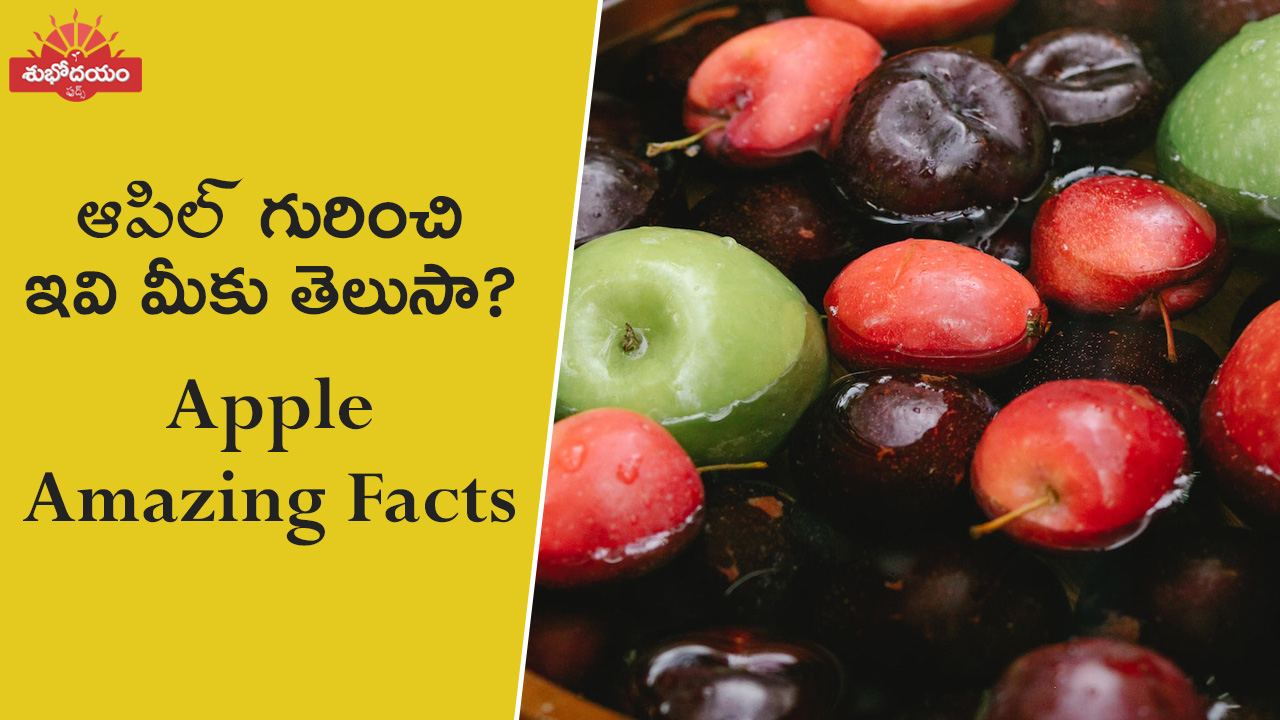APPLE FRUIT AMAZING FACTS
1. Apples are a rich source of antioxidants
Apples are packed with antioxidants, which are compounds that protect the body against damage from free radicals. Free radicals are unstable molecules that can cause damage to cells, leading to conditions such as cancer and heart disease. Antioxidants neutralize these free radicals, helping to keep the body healthy.
2. Apples can help lower cholesterol
The pectin found in apples can help lower cholesterol levels. Pectin is a type of soluble fiber that binds to cholesterol in the bloodstream, helping to remove it from the body. Eating apples regularly can help to lower cholesterol levels and decrease the risk of heart disease.
3. Apples can help with weight loss
Apples are a low calorie, high fiber food, making them a great choice for weight loss. The fiber in apples helps to fill you up and keep you feeling full, so you're less likely to overeat. Additionally, the antioxidants in apples can help to boost metabolism, making it easier to burn calories.
4. Apples can improve brain health
Apples contain quercetin, an antioxidant that has been shown to improve brain function. Quercetin has been shown to protect the brain from damage, reduce inflammation, and improve memory and learning. Eating apples regularly can help to keep the brain healthy and functioning properly.
5. Apples have anti-inflammatory properties
Apples contain compounds called flavonoids, which have anti-inflammatory properties. Inflammation is a natural response to injury or infection, but chronic inflammation can lead to a host of health problems, including cancer, heart disease, and Alzheimer's disease. Eating apples regularly can help to reduce inflammation in the body, providing protection against these conditions.
6. Apples are low in calories
Apples are a great option for people trying to lose weight or maintain a healthy weight. A medium-sized apple contains about 95 calories, making it a low-calorie option for snacking or adding to meals. Plus, the high fiber content in apples helps you feel full, which can help with weight management.
7. Apples are available year-round
Apples are available year-round, but they are typically harvested in the fall. Different varieties of apples have different peak seasons, so you can always find a type of apple that is in season and at its best flavor.
8. Apples are easy to incorporate into a healthy diet
Apples are a versatile fruit that can be eaten raw, cooked, or used in baking. They can be added to salads, made into sauces, or used as a topping for oatmeal or yogurt. They can also be used in baking to make pies, cakes, and muffins. Apples can also be juiced or dried to make apple juice or apple chips. These are some ways that you can incorporate apples into a healthy diet.
9. Apples are grown all over the world
Apples are grown all over the world, with the top apple producing countries being China, the United States, Turkey, Italy, and Poland. There are over 7,500 different varieties of apples grown worldwide and each country has its own unique varieties of apples.
10. Apples have a long history
Apples have a long history, dating back to ancient civilizations. The ancient Greeks, Romans, and Egyptians all cultivated apples and believed that they had medicinal properties. In fact, the apple is often associated with the Garden of Eden in Christianity and the fruit of knowledge in Greek mythology.
These are just a few of the amazing facts about apples. This delicious and nutritious fruit is packed with health benefits, making it a great choice for a healthy diet. So next time you reach for an apple, remember all the benefits it has to offer!

















